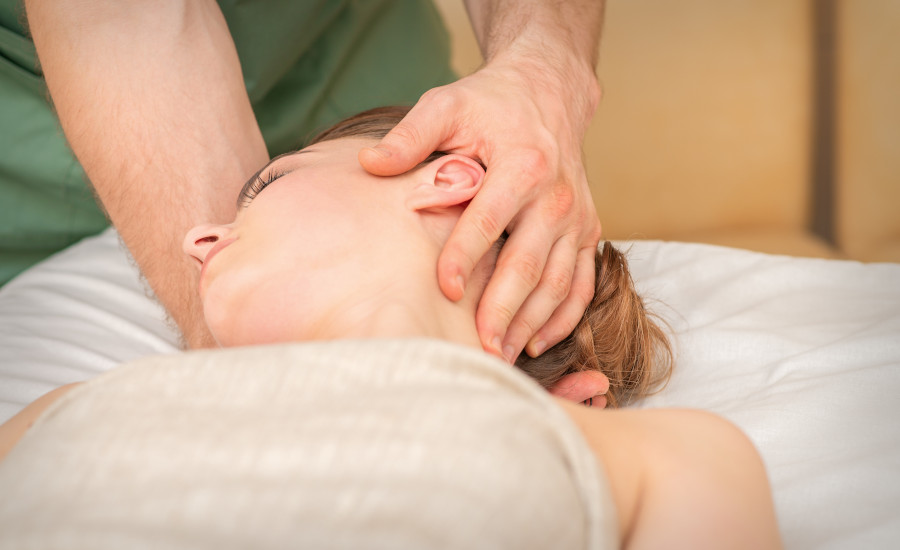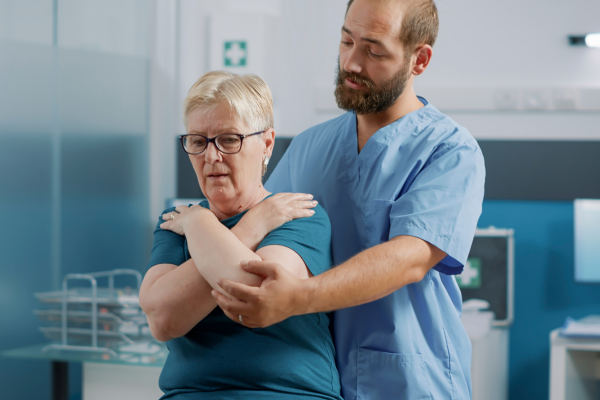Around 95% of the general population have experienced headaches at some stage in their life, with nearly one-in-two suffering a significant headache at least once a year. Whilst most can be treated with simple steps such as rest, hydration, and OTC medication such as paracetamol or ibuprofen, some require further interventions. One effective treatment for many types of headaches is osteopathy. A 2006 study looking at the treatment of tension headaches, comparing two groups in which one received osteopathy, concluded:
“The people in this study who did relaxation exercises and received 3 osteopathy treatments had significantly more days per week without headache than those who did only relaxation exercises.”
Let’s have a look at some of the different types of headaches that an osteopathy treatment can help with effectively.
The different types of headaches
There are over 200 different types of headaches, however there are three that are overwhelmingly the most common, accounting for over 90% of all incidents.
Tension-type headache (TTH)
This is by far the most common and affects 60–80% of the population. These headaches are associated with mental stress and / or postural tension. They are felt as tightening or pressure on both sides of your head.
Migraines
Migraines are the next most common headache, with an overall prevalence of 15%, although this is skewed with females being more than twice as likely as men to suffer. Whilst there are many causes of a migraine, they can be triggered from issues in the upper neck. Often, they affect one side of your head and can cause issues with sight or sound sensitivity. In extreme cases they may cause abdominal pain, nausea, and vomiting.
Cervicogenic headaches (CGH)
Finally Cervicogenic headaches occur when pain is referred from a specific source in the neck, up into the head. CGH symptoms often occur on one side of the neck or head, sometimes causing pain around the eyes. A CGH is a secondary headache, caused by a pre-existing physical or neurologic condition.
How can Osteopathy help?
There is a common thread to many headaches. Whilst the pain is experienced in the sufferer’s head, the cause is often a biomechanical issue somewhere else in the body. The underlying issue may be the result of sudden trauma, or caused by a build up of poor posture, which may itself be caused by a variety of prior factors.
Osteopathy uses palpation, manipulation, stretching and massage to increase the mobility of joints, and help relieve muscle tension. This enhances blood and nerve supply to tissues, helping your body’s own healing mechanisms. It is no surprise then that research has found that osteopathy is effective in treating many types of headaches, especially those that have a biomechanical cause or trigger. Whilst paracetamol or ibuprofen may partially relieve the symptoms, osteopathy looks to address the cause of the headache, and correct the underlying issue.

How will I know if Osteopathy will help relieve my headache?
If you have not had osteopathy before, it might seem a little daunting. A session with one of our qualified osteopaths will include questions to understand more about you, your body, and the headaches you are suffering. Depending on what is discovered, soft tissue massage will help to relieve a build up of muscular tension. Osteopathic joint articulation may be used, encouraging joint release and movement, helping to relieve the referred headache pain. If you are suffering from cervicogenic headaches, the focus areas are likely to be mid-spine and neck. Your osteopath will also give you some help and advice about how you can minimise the recurrence of the headache. This may include gentle exercises, advice on posture or similar.
Hopefully, as reflected in the research into osteopathy as an effective treatment, you should experience both a reduction in the number, and the severity, of the headaches you are experiencing. A follow up session may be required, but it is by no means always necessary.
If you would like to know more about how we can help you can call anyone of our clinics or email us on contact@carltoddclinics.com. We will be more than happy to have a chat with you and see if we can help.





